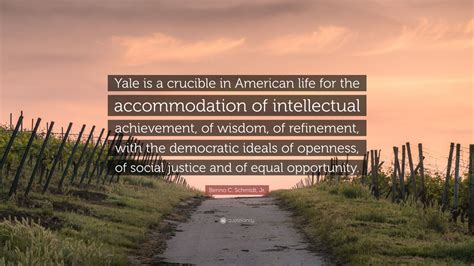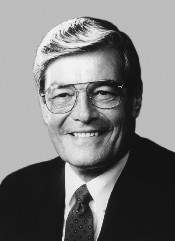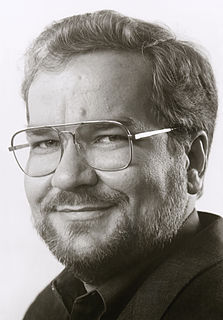A Quote by Benno C. Schmidt, Jr.
Privacy is absolutely essential to maintaining a free society. The idea that is at the foundation of the notion of privacy is that the citizen is not the tool or instrument of government - but the reverse... If you have no privacy, it will tend to follow that you have no political freedom.
Related Quotes
What I do think is important is this idea of a 'privacy native' where you grow up in a world where the values of privacy are very different. So it's not that I'm against privacy but that the values around privacy are very different for me and for people who are younger than my parent's generation, for whom it's weird to live in a glass house.
You have plenty of liberals out there who are all for the cops raiding their political enemies, they're all for the cops doing whatever they have to do to get whatever goods they want on their political enemies. And yet the Patriot Act comes, oh, you can't do it, it's an invasion of privacy. And yet in some cases they don't care about other people's privacy. Privacy is irrelevant to them depending on what the target is.
I don't think he would have had any trouble answering Justice Sonia Sotomayor's excellent challenge in a case involving GPS surveillance. She said we need an alternative to this whole way of thinking about the privacy now which says that when you give data to a third party, you have no expectations of privacy. And [Louis] Brandeis would have said nonsense, of course you have expectations of privacy because it's intellectual privacy that has to be protected. That's my attempt to channel him on some of those privacy questions.
Privacy is an age of universal email collection and spying, with millions of CCTV cameras and warrantless spying pervasive; privacy has become virtually nonexistent and, therefore, extremely scarce and desirable. Bitcoin can be a completely anonymous transaction that maintains the user's privacy beyond the reach of any authority.
The trouble is that privacy is at once essential to, and in tension with, both freedom and security. A cabinet minister who keeps his mistress in satin sheets at the French taxpayer's expense cannot justly object when the press exposes his misuse of public funds. Our freedom to scrutinise the conduct of public figures trumps that minister's claim to privacy. The question is: where and how do we draw the line between a genuine public interest and that which is merely what interests the public?



































